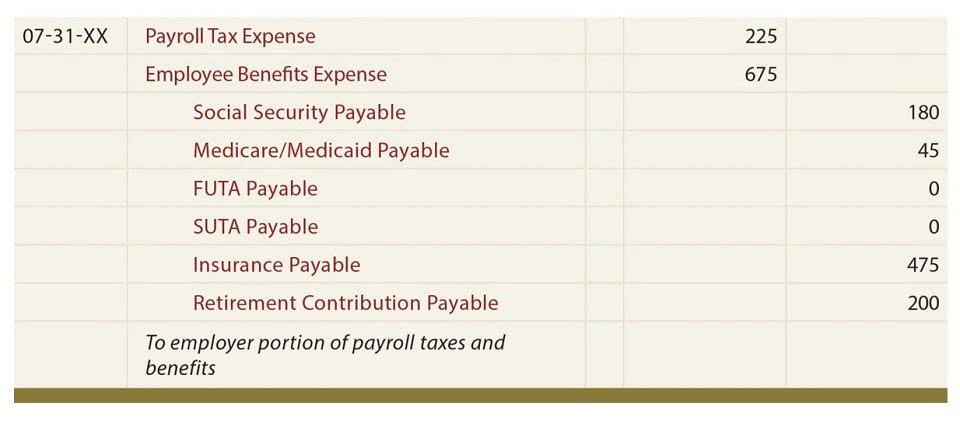Bookkeeping in the Medical Office: How to Help Profitability

It never hurts to speak with a professional who can help you take full control of your medical practice. When you partner with a professional accountant or bookkeeper, you will have more time to focus on patient care rather than struggling with the confusing business side of your practice. When you manage your costs, you can improve your profitability ratios. Make sure to look at those areas of high expenses, such as rent and wages.

Free Course: Understanding Financial Statements
Set up a cash reserve to handle delays in payment or unexpected expenses. By managing cash flow effectively, you can keep your bookkeeping for doctors office practice running smoothly even during challenging financial periods. When medical practices are experiencing profit loss or cash flow struggles, they sometimes defer taxes as a way to access additional money for operations.
Technology integration and data security
- For that reason, you need to find the right balance between these two factors.
- You’re up against a billing system that grows more complex by the day.
- They provide effective solutions for handling finances, payroll services, and tax compliance.
- Whether you are starting your own medical practice or need help with an established one, don’t forget about your bookkeeping.
- Moreover, poor accounting can erode patient trust and damage the office’s reputation, ultimately affecting its long-term viability.
- By banking on our solutions, our clients see a 30% boost in financial accuracy, a 25% reduction in payroll errors, and a 40% improvement in budget adherence.
A balance sheet is one of the key financial statements, providing an overview of a health care practice’s financial position. The balance sheet offers insight into whether the organization can meet its obligations. This process involves tracking and recording the cost of depreciable assets over time. Depreciable assets are replaceable items such as computers, furniture, and medical equipment. By tracking depreciation costs, organizations can plan for future purchases and budget accordingly. It involves tracking and analyzing health care spending across many areas.
Top Bookkeeping Tips for Small Medical Practices & Doctor Offices
Healthcare providers rarely study business management during higher education. As a result, it’s easy for new practice owners to make mistakes as they transition into business ownership. contribution margin The cash basis of accounting involves recognizing revenues when you receive them and expenses when you pay them. Meanwhile, the accrual basis recognizes revenues when you earn them and expenses when you incur them. For practices intending to maintain their current size and structure, the simplicity of cash basis accounting might be more beneficial.
- In the ever- evolving landscape of healthcare, doctors and medical professionals play an indispensable role in safeguarding the health and well- being of individuals and communities.
- Accounting focuses on recording financial transactions, while finance manages the company’s resources.
- The many years you spent in medical school were highly effective at preparing you to assist your patients.
- Continuous professional development and a supportive work environment are key to keeping the accounting team skilled and motivated.
- Here’s how you can improve cash flow and provide timely, accurate data to your CPA and board.
- Individual practice preferences, needed levels of automation, and reporting requirements are frequently the deciding factors when deciding between them.
- Contact us today to see how we can improve your practice’s efficiency and profitability.
We Provide

Whether you are a solo practitioner or part of a large medical group, our customized accounting services for doctors ensure your financial operations run smoothly. Keep track of patient payments, insurance reimbursements, and any other sources of income. On the expense side, monitor costs like office rent, utilities, medical supplies, and employee salaries. Regularly updating your records helps you understand cash flow and identify areas where you can reduce costs. Reviewing your finances monthly can prevent financial issues from piling up and allows you to stay on top of your practice’s budget. Mixing personal and business finances is a common mistake that can lead to confusion and mistakes.


Knowing these metrics can also highlight areas that need improvement, allowing you to adjust strategies and stay financially healthy. To help your private medical practice or independent doctor’s office provide the best patient care without losing money, we’ve put together a list of helpful tips for better bookkeeping practices. When you accurately manage your books, you can keep an eye on the health of your medical practice. If you want to know the pulse of your business, make sure to create a schedule for profit and loss statements. When you create these statements, you have an overview of your losses and gains. You can eliminate any discrepancies and decide where to invest your money with that information.
The Best Shopify Accounting Software: Our Top Seven Picks
- Generally, the most significant medical practice accounting challenges stem from the healthcare billing process.
- By managing personal and business finances separately, you can avoid errors and gain better insight into your practice’s profitability.
- Health care businesses and medical practices might struggle to keep up with the constant changes in regulations, rules, and laws that govern the industry.
- The cash basis of accounting involves recognizing revenues when you receive them and expenses when you pay them.
- Popular accounting tools for small businesses, like QuickBooks or Xero, can make it easier to handle your practice’s accounting needs.
- Meanwhile, the accrual basis recognizes revenues when you earn them and expenses when you incur them.
For the medical industry, accrual accounting is the most common form of bookkeeping. With this method, you count for all the expenses when you receive a bill. Along with that, you will note any receivables from your patients at the moment of billing.